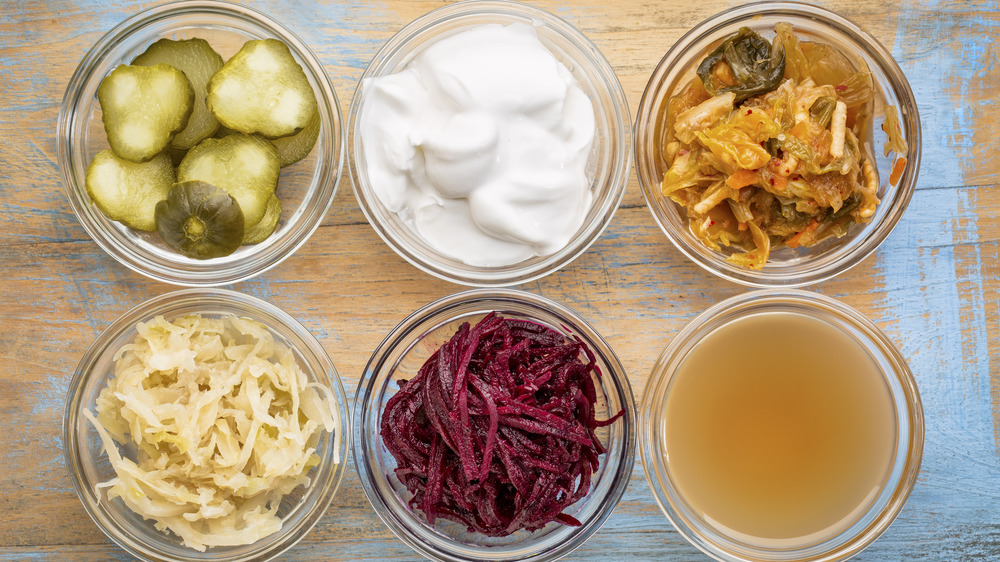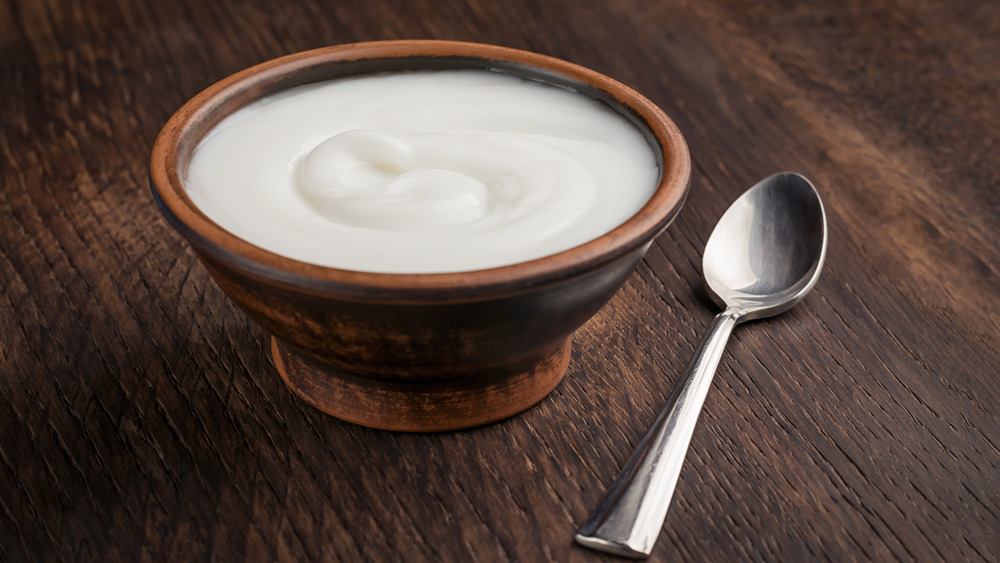The Real Reason Fermented Foods Are Good For You
If you cut open a bag of sauerkraut in a group of people, some will line up with a bowl and fork, while others will head for the door. It's not uncommon for people to have strong reactions to certain fermented foods. But, even for those who might find the smell of kimchi or pickled fish overwhelming, it's worth exploring fermented foods and finding some to enjoy as a regular part of your diet.
The recent surge in popularity of fermented foods is really nothing new. Fermenting foods to make them last longer — in Northern climates, "longer" meant all through the winter — is a practice thousands of years old. These days the interest in fermentation has more to do with its health benefits than a lack of refrigeration.
Fermentation is the process in which microorganisms, like yeast or bacteria, convert carbohydrates into alcohol or acids. These alcohols or acids then act as natural preservatives, as well as give a tart flavor to the food (via Healthline).
Scientists have found that much more happens during fermentation than just an extension of shelf-life. The process promotes the growth of live microorganisms called probiotics, which are vital for good digestion. Torey Armul, a registered dietician nutritionist and a spokesperson for the Academy of Nutrition and Dietetics, told US News & World Report, "The probiotics that are created through fermentation are very beneficial for digestive health. Fermented foods produce bacteria ... and when you eat that, it adds to the healthy bacteria in your gut."
Probiotics are crucial for good gut health
These extra probiotics can help a gut microbiome that has become imbalanced in many Americans due to highly processed diets, the use of antibiotics, and a higher degree of hygiene, which cuts down on the number and variety of microbes that people would otherwise be exposed to. This imbalance between good and harmful gut bacteria — in favor of the harmful — can lead to a host of chronic health problems, according to Harvard Health Publishing.
Not only do fermented foods offer lots of gut-healthy probiotics, they actually, in many cases, have a greater nutritional value than their non-fermented counterparts. The fermentation process magically produces additional nutrients in the foods that weren't there before, like vitamin B12.
While eating fermented foods alone won't make up for an otherwise unbalanced diet, they can be a valuable part of a healthy lifestyle. And the variety of fermented foods now available — yogurt, kefir, sourdough bread, sauerkraut, kimchi, kombucha, and more — means there's something to please every palate.

